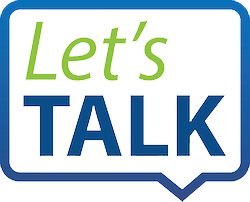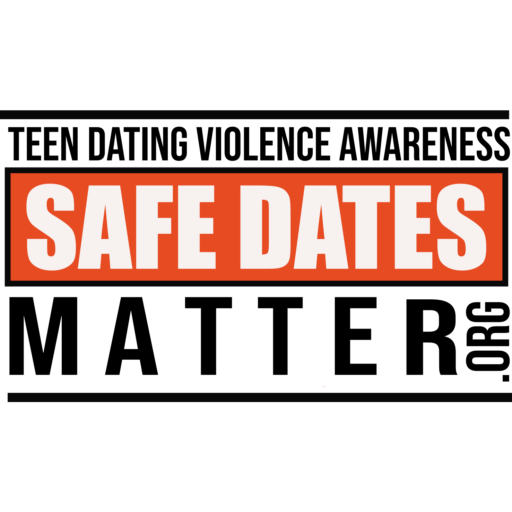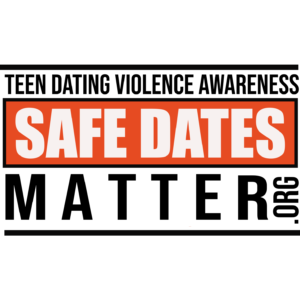
 Reaching out and talking to someone about what is going on in your relationship can be confusing and scary. But talking about your relationship and your feelings is important. You are important and what you are dealing with is important.
Reaching out and talking to someone about what is going on in your relationship can be confusing and scary. But talking about your relationship and your feelings is important. You are important and what you are dealing with is important.
We often feel we don’t have the courage to speak up, or we tell ourselves what is going on is no big deal. We don’t reach out. We don’t talk and we keep everything to ourselves.
Listen to your gut. It will tell you if something does not feel right.

Safe Dates Matter
You matter and You Can. There is help out there.
- Do you need someone to just listen?
- Do you need someone to not judge you?
- Do you need someone to help you figure out what is going on?
- Do you need someone to help you figure out whether what is happening is healthy or unhealthy?
- Do you need someone to NOT tell you what to do?
- Do you need someone to help with options?
- Do you need someone to talk with confidentially and free of charge?
A trained Safe Journey teen counselor advocate is available to listen, talk with you, and help with questions about your relationship. A teen counselor advocate is there to listen, not to judge you. They can provide options, share your experience, and help you understand what is happening in your relationship. When talking to a teen counselor advocate, the information you discuss is confidential and free. You can contact us online or call (814) 438-2675.

You Can!
- Reach out and Let’s Talk to someone who can help you understand what an unhealthy relationship looks like.
- Reach out and Let’s Talk to someone who can provide guidance and knowledge about relationships.
- Reach out and Let’s Talk to someone who can help you figure out your options regarding your relationship.
- Reach out and Let’s Talk to someone who will just listen to your thoughts and concerns.
- Reach out and Let’s Talk about not having to do this alone. There is someone to give you a listening ear.
No one should have to go through an unhealthy or abusive relationship alone. We want to empower you to get the support you need.
When you are going through a rough time in your relationship, you may feel abandoned and alone — but you’re not. There are many people in your life and your community who can help. Confiding in a Safe Journey teen counselor advocate, a trusted friend, a teacher, a school counselor, a family member, or others in your community can provide the support you need to make it safely through these hard times. Let’s figure out who can help.
A Safe Journey teen counselor advocate
A Safe Journey teen counselor advocate can provide effective support to help you manage an unhealthy or abusive relationship. A teen counselor advocate is trained to listen to your concerns without judging you. Your safety is the No. 1 priority, and all support is free and confidential. A teen counselor advocate will help you understand what is happening in your relationship and help you decide which options are right for you. A Safe Journey teen counselor advocate also can meet you at your school and assist you in filing a Protection From Abuse order. You can reach out through safedatesmatter.org or by calling Safe Journey at (814) 438-2675. Teen counselor advocates are mandated reporters, which means there may be times when they are required to tell someone about your situation. It’s important to talk to your teen counselor advocate about what situations are required to be shared with others.
Friends
Friends may see that you are in an unhealthy or abusive relationship and be able to help. Still, it may be difficult for the two of you to talk about what you are going through. They may know something is wrong, but they don’t know how to approach you. They may think bringing it up will make you mad. It may be hard for you to talk about your situation because you are not sure how a friend will react. “Will I be judged?” “Will my friend tell other people?” You know who your true friends are. It can be well worth the risk to share your story with a friend in order to accept their love, encouragement, and unconditional support.
Family
Family members also can help. After all, they are probably the people who know you the best. But talking about your abusive relationship with your family can also be challenging — on both sides of the family fence. Even though your parents and siblings may suspect that something is going on with you, they may not recognize that you are in an unhealthy relationship. If they do know, they may not know how to bring it up to you. Even though they are around you the most, it can be embarrassing and scary to talk to a family member. What if your parents didn’t want you to date at all, and now you’re in an unhealthy or abusive relationship? What will they do? Will they be angry or upset? How do you start the conversation? What if you confide with a brother or sister and they tell your parents? You will have to weigh the risks and rewards when opening up to your immediate family. If you have a family member you can trust, it will be worth the effort to open up.
Community members
Consider reaching out to people you meet frequently in your community. Some of these members might be a bus driver, a doctor, a school nurse, a store employee, a neighbor, a local YMCA staff member, or others. Look around and you might find the person who can truly help you.
Teachers
Many teachers care about students and want to help in any way they can. Try talking to one of them for support. At first it may be hard to start a conversation, but try to make a connection. You might open the conversation by discussing a topic that interests them. If it is one of your own teachers and you feel comfortable, let them know you need to talk. Teachers also are mandated reporters, which means there may be times that they are required to tell someone about your situation, depending on the state or school policy.
A faith leader or mentor
There might be someone in your faith community you could reach out to. Many people of faith want to help and may be willing to talk to you. If you don’t belong to a church, talk to friends or family and see if there is a church in your community that would be a good fit for you.
School counselors
A school counselor may be trained on how to respond to teen dating abuse and could be someone to reach out to. They also may help you talk to a Safe Journey teen counselor advocate, your parents, a school resource officer, or another trusted adult. Because talking about your relationship may be difficult, consider reaching out to your school counselor about another situation. When you feel more comfortable, start talking to them about your relationship.
Coaches
An athletic coach is another person you might be able to talk to. Many coaches focus on your mental well-being as well as your physical well-being. Break the ice by talking to your coach about another issue. When you feel comfortable, you can talk to them about your relationship. Coaches are also mandated reporters and may be required to report any abuse to their superiors.
Extended family
You might find support from an extended family member, such as a grandparent, aunt, uncle, or cousin. Be upfront with your family member about your needs. If you’re not ready for their advice, it’s OK to say you’re just looking for someone to listen. Also, be sure to point out any information you want to keep confidential and clarify what’s OK to share with others.
School resource officer or police
A school resource officer or police officer may be a valuable resource. Let the officers know what you want from them. Local police would be up to date about the laws concerning dating abuse. They will listen to you and give you information about legal consequences if certain actions occur in your abusive relationship. They can provide answers to your questions about your rights and tell you what resources are available in your community. They also can be at your side when you call a Safe Journey teen counselor advocate.
We want you to feel empowered to get the support you deserve. No one should have to go through an unhealthy or abusive relationship alone. Consider these steps when turning to someone you have chosen for support.
Let’s Talk: Identifying someone to help you
Think about the person you are considering turning to for support. Do you think they will be a good listener? Do they have your best interests at heart? Think about who you are most comfortable discussing this problem with.
Let Talk: Sharing
You may never be completely ready to share, but it’s important to make a start. So after a lot of consideration, you have chosen someone you feel you can share this problem with. Anyone facing a tough time is never ready to talk — and that’s OK. It can be very hard to bring up a topic as serious as dating abuse. Try to spend quality time with the person you feel may be able to help, so you are more comfortable when you do feel ready to talk. This may be true even with a Safe Journey teen counselor advocate. Start slowly and just get to know the advocate first. They are not there to push you but simply to listen and help you through your process, however long that may take.
Let’s Talk: Your situation
It can be difficult to talk about dating abuse. It’s very hard to find the right words to start the conversation. You could start by saying, “I have worries about my relationship but I’m very nervous talking about it.” You could refer them to our safedatesmatter.org website to help them understand what you may be going through. No matter how you start the conversation, know that you are doing the right thing by seeking help.
Let’s Talk: Boundaries
You have the right to decide what boundaries are right for you when sharing information with others. Once you’ve decided to talk to someone about your situation, consider what you want from them. What role do you need them to serve? If you want them only to listen when you talk, let them know. If you do not want advice from them, let them know. If you want them to go with you to see a teen counselor advocate, let them know. If you want the information you are sharing with them to be confidential, let them know. It’s up to you to decide the boundaries you want to set.
Let’s Talk: Getting others involved
Due to the seriousness of the situation, there may be times when the person you have shared this problem with might tell you it’s important to share the it with someone else. If they know you were physically abused or threatened, or if they are concerned for your safety, they may tell someone about your situation. This could be someone from the school, a parent, or even a school police officer. Sharing can be risky, but the support you receive from that person can outweigh your feelings of distrust.
Let’s Talk: Helpers’ reactions
Once you share your information with other people, you may face a number of different reactions. Family members may react in a way that makes you feel like they’re upset with you. More likely, they are upset at the person who is abusive to you or about the situation you are in. They’re upset because they love you and don’t want you to be mistreated. Sometimes, the person with whom you share information may say negative things about your dating partner. It’s OK to let them know that is not helpful to you, and that you really need them to just listen.
Let’s Talk: When others like the abuser
Your abusive dating partner may be well-liked by your friends or family members. If your family likes the person you are with, it may be difficult to get them to see or understand that this person is abusing you. However, talking to someone you are closer to within the family or someone else, like a friend who knows your relationship situation, may be helpful. That person may be able to help you talk to your family about your abusive partner. Remember, although your family may like your partner, they should also want the best for you.


